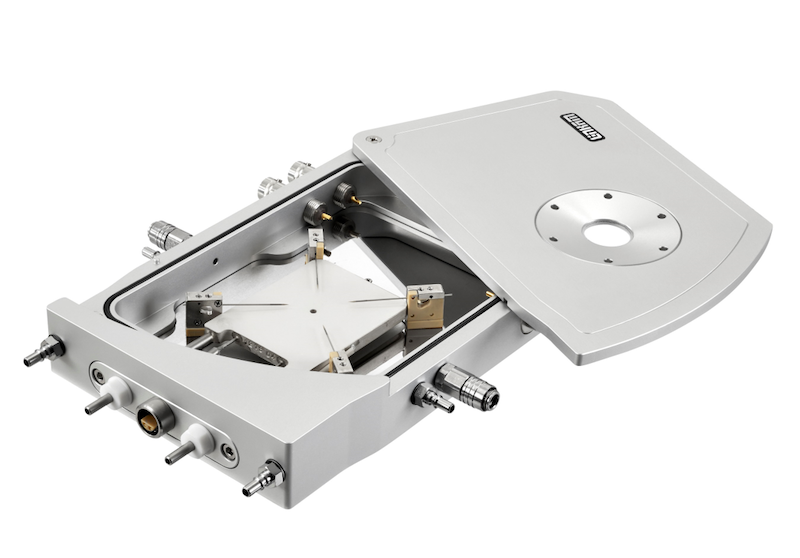Channels
Special Offers & Promotions
Researchers measure temperature-dependent photovoltaic external quantum efficiency to transform the future of solar cells

Researchers at Swansea University have used a Linkam LTS420E-P stage to make temperature dependent measurements on organic photovoltaic (PV) cells, advancing our understanding of the PV cells that are the basis of solar power generation.
Researchers at Swansea University, UK, have proven that it is possible to achieve near-unity charge generation quantum yields in organic solar cells. These findings present a route for designing and constructing higher-performance solar cells, which help to secure our future using renewable energy sources to meet sustainability goals.
The research, led by Dr. Wei Li and Dr. Ardalan Armin at Swansea, focused on advanced characterisation methods, and how they can aid our understanding of PV materials and device physics, as well as helping to reach better and more practical engineering solutions. To achieve this, the team conducted a range of temperature dependent measurements, including temperature dependent photovoltaic external quantum efficiency (EQE), and temperature dependent absorbance to investigate the thermodynamic and kinetic processes.
The results show that it is possible to rapidly measure the EQE of solar cells at different temperatures, for the first time allowing researchers to investigate the kinetic processes accurately. The research also reveals the relationship between the charge generation, recombination, and device efficiency in novel state-of-art non-fullerene solar cells, further improving our understanding of PV processes.1
Dr. Ardalan Armin, Associate Professor in the Department of Physics, Swansea University, comments: “We’re pleased to share the positive results of our research with the wider scientific community, and we’re excited to see what the future holds for PV cells as a reliable, high-performing renewable energy source. The Linkam LTS420E-P stage is a vital component within our research, as it regulates temperatures with precision, which is essential for our highly sensitive measurements.”
Dr. Duncan Stacey, Sales and Marketing Director, Linkam Scientific Instruments, shares his thoughts on the research: “The team at Swansea has made a significant breakthrough in the PV space, which is set to bring us one step closer to a sustainable future fuelled by renewable energy. We are proud to see the contribution of our LTS420E-P stage and we hope it continues to serve the team at Swansea University in its work into the performance of new organic materials.”
The Linkam LTS420E-P stage is an evolution of the original LTS420 stage. Compact, easy to use, and easy to connect to other instrumentation, the LTS420E-P provides precise temperature and environmental control of the sample, and its larger stage body allows up to 8 positional tungsten probes to be attached to electrical connectors within the sample chamber. This enables the user to make electrical measurements on the sample, while at the same time accurately controlling the temperature inside a gas tight environment.
About Linkam Scientific Instruments
Linkam develops and manufactures a broad range of temperature and environmental control stages for both OEMs and end users. From high to cryo temperatures as well as humidity, electrical connections, gas purging, vacuum and pressure, for enhanced sample analysis. Linkam stages are used with light microscopes and a wide range of analytical techniques including Raman, FTIR, WAX/SAX and many more to visualise and characterise the properties of materials. Linkam stages are found in thousands of laboratories worldwide with the most successful microscope heating stage, the THMS600, selling over 6,000 units alone. Linkam is the market leader in temperature-controlled microscopy.
REFERENCES [1] Li, W., Zeiske, S., Sandberg, O.J., Riley, D.B., Meredith, P., Armin, A. Energy Environ. Sci., 2021,14, 6484-6493
Recent news from Linkam Scientific Instruments
Media Partners


